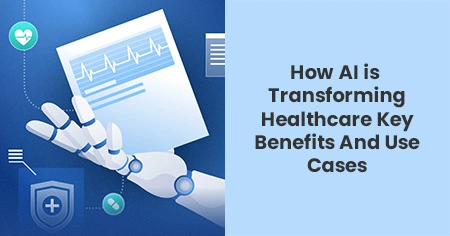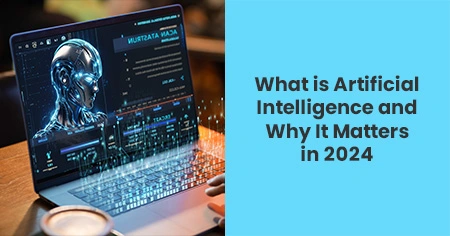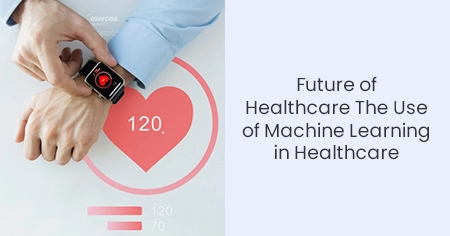Artificial intelligence is used in healthcare for everything from answering patient questions to developing new pharmaceuticals and helping with surgeries.
According to a McKinsey study, AI and machine learning technologies have increased revenue for 63% of companies. Furthermore, AI implementation improved the experiences of 65% of employees. The study found that AI technologies enhanced customer experiences for 67% of businesses. AI's future in healthcare promises transformative advances, such as lowering costs, revolutionizing processes and optimizing treatments. This article will discuss key benefits and critical use cases on how AI transforms healthcare.
What does AI mean for healthcare?
AI in healthcare is a broad term that uses technologies such as ML, NLP, robotics, predictive analytics and computer vision to extract value from medical data. Fundamentally, intelligent solutions supplement human intelligence and lighten heavy workloads for physicians, scientists and nurses through data-driven augmentations.
Let's take a look at some supporting statistics

- In 2023, the AI market in healthcare is estimated to be worth approximately USD 22.45 billion. It is expected to grow at 37.5% annually from 2023 to 2030. The increasing digital health data drives this growth, demand for personalized medicine, and the need to reduce healthcare costs.
- According to a study, experts anticipate that the global AI in healthcare market will grow at a compound annual growth rate.
- According to a survey of healthcare leaders in the United States, approximately 41% expect AI to be fully functional by 2021. Furthermore, 26% said their AI system was moderately active.
- According to one study, the [healthcare] market will grow from about one billion to more than 28 billion US dollars between 2017 and 2025.
- According to another survey, AI systems in healthcare are expected to generate approximately 6.7 billion US dollars in revenue by 2021.
- According to one study, North America will account for 47.6% of the AI in the healthcare market by 2022.
Benefits of AI in Healthcare

Using artificial intelligence healthcare improves your business in a variety of ways. You can improve customer service by utilizing its power. So, learn about the key benefits of AI technology in healthcare.
- Improved diagnosis and treatment
AI can process and analyze massive amounts of patient data to assist healthcare professionals with an MBBS degree in making more accurate diagnoses and prescribing appropriate treatments. AI can identify patterns in patient data that humans might miss using machine learning algorithms. This can lead to more targeted treatments, earlier disease detection, and better health outcomes.
- Patient Engagement
AI provides personalized medication guidance as well as 24-hour support. Patients can consult AI for information on a new medication, including side effects and administration instructions. The availability of AI reduces provider workload by handling queries and freeing them up for complex cases. Patient engagement streamlines care, empowering both providers and patients.
- Enhanced efficiency
AI can automate routine administrative tasks like appointment scheduling, insurance claim processing and patient record management. This allows healthcare professionals to spend more time providing direct patient care while ensuring patients have access to health insurance. AI can also optimize workflows and increase the efficiency of healthcare operations, lowering costs and improving patient outcomes.
- Reduced hospital readmissions
AI tools can identify patients at risk of complications requiring hospital readmission after discharge based on their profiles and recovery patterns. This facilitates the implementation of preventive measures such as additional education, personalized at-home monitoring, prompt follow-ups, and medication or lifestyle changes. As a result, avoidable and costly readmissions are reduced.
- Faster drug discovery
AI can speed up drug discovery by analyzing large datasets to identify new drug targets and predict drug efficacy and potential side effects. This can help researchers develop more effective clinical trials and bring new treatments to the market in less time.
- Improved patient safety
AI can reduce the risk of medical errors and adverse events. For example, AI-powered tools can detect potential drug or adverse medication reactions, alerting healthcare professionals to potential risks. Using AI to analyze patient data, healthcare professionals can identify potential safety risks and take proactive measures to prevent harm.
- Saves overall costs
Let's look at an exciting finding: AI-based tools and solutions can help save between 5% and 10% on healthcare spending. That is enormous! Furthermore, improved clinical operations, quality, and safety may save hospital costs.
Another example is AI saving money through automation, which reduces the time-consuming manual labour of analyzing millions of images for disease signs. In this context, Healthcare IT News predicts that AI automation will save money in areas such as:
- Robotic surgery - $40 billion
- Virtual nursing assistants - $20 billion
- Fraud detection - $17 billion
Finally, you can benefit from increased accuracy and efficiency, which helps reduce costs.
- Fraud prevention
- AI integration can help detect unusual or suspicious trends in insurance claims, such as billing for expensive services or unperformed procedures.
- Unbundling charges.
- They are performing unnecessary tests to exploit insurance reimbursements.
AI can process and analyze massive amounts of patient data to assist healthcare professionals in making more accurate diagnoses and prescribing appropriate treatments. AI can identify patterns in patient data that humans might miss using machine learning algorithms. This can lead to more targeted treatments, earlier disease detection, and better health outcomes.
- Minimized Errors
Integrating medical AI insights with knowledge improves outcomes and efficiency. By emphasizing transparent methodologies, AI addresses data errors and gaps. Medical errors are reduced as a result of integration. AI transforms administrative tasks, such as managing patient records or recording progress notes with an HIPPAA-compliant AI scribe solution, further optimizing healthcare.
- Virtual nursing assistants
According to one study, 64% of patients are comfortable with AI for continuous access to support and supplemental nursing services. AI virtual nurse assistants, which include chatbots and apps, can answer medication questions, send reports to physicians, and help with appointment scheduling.
AI use cases in healthcare
AI use cases in healthcare are diverse and widespread, ranging from medical imaging to virtual assistants and chatbots. Here are some use cases of AI in healthcare:
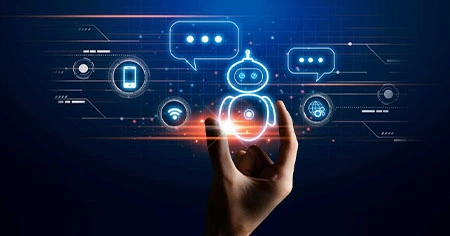
- Patient Prescreening
AI improves patient screening before arrival. It employs more user-friendly voice and text interactions than traditional methods. AI employs machine learning to diagnose symptoms and mimic real-world healthcare expertise accurately. The tool uses shared records, assists patients with care, recommends doctors, and speeds up diagnosis.
- Electronic health records (EHRs)
EHRs (electronic health records) are essential in modern healthcare delivery. AI technology is increasingly important in managing electronic health records (EHRs). AI can help medical professionals analyze large amounts of medical data to identify patterns and trends that can aid disease prevention and treatment.
AI algorithms can analyze EHR data to identify patterns and trends. This can help doctors identify patients at high risk of developing certain diseases and develop personalization plans.
- Patient intake and triage
AI improves patient intake and triage, making emergency care more efficient. AI quickly collects patient information through chatbots and voice assistants, which is especially important during emergencies.
AI-powered automated data simplifies scheduling and precise doctor assignments. It reduces patient anxiety, increases medical staff efficiency, and lowers data collection costs.
- Lifestyle Management and Monitoring
AI-powered devices analyze physical activity, sleeping patterns, and other health-related activities. These devices comprehensively examine and explore users' physical well-being and how they can improve their health. AI devices can also help people manage chronic diseases like diabetes, which requires constant blood sugar monitoring.
- Virtual assistants and intelligent chatbots
These digital products play an essential role in helping people in need. They answer queries and handle administrative duties. These tools can provide 24/7 guidance on medications, upcoming visits, symptoms, and home remedies based on integrated health records. For example, a person could ask such a bot whether a rash requires medical attention or if it can be treated with over-the-counter ointment. AI quickly analyses this person's medical history and medication regimen to recommend a highly accurate solution. Intelligent chatbots relieve pressure on doctors and nurses by providing convenient service access.
- Drug Discovery
Deep learning, in particular, revolutionizes discovery by rapidly intricate chemical structures and analysis. It is both efficient and cost-effective. Artificial intelligence healthcare is used by businesses to replace manual and slow processes.
- Remote patient monitoring
Artificial intelligence enables hospitals and clinics to control vital health indicators of their patients remotely, modify treatment strategies, analyze ageing patterns, and provide prompt interventions without in-person consultations. Wearable devices and sensors constantly collect biometric data such as blood pressure, glucose levels, respiratory rate, and heart rate. This data is seamlessly transferred to cloud-based platforms, where machine learning algorithms generate instant alerts for any significant changes that may indicate an impending health concern.
- Optimize of Treatment
Doctors use AI to improve medical treatments by updating guidelines based on new knowledge and patient records. This method adapts to the needs of the patients, providing person personalized care. It helps doctors make better decisions by reducing errors.
- Robotic surgery
The cutting-edge field has undergone extensive testing, leveraging robot surgeons' ability to mitigate human errors caused by exhaustion and fatigue. Machines that operate tirelessly for extended periods effectively meet the demands of surgical procedures, displaying top-notch precision. During lengthy procedures, the dependability of robot surgeons exceeds that of human specialists, ensuring consistency and accuracy.
The Future of Artificial Intelligence in Healthcare:
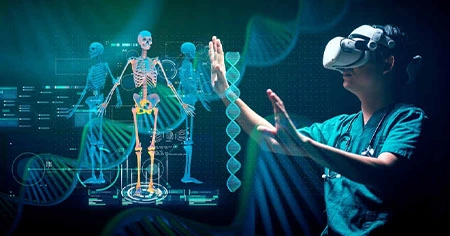
Artificial intelligence healthcare provides opportunities to help reduce human error, assist medical professionals and staff, and provide patient services 24 hours a day, seven days a week. As AI tools improve, the potential for using AI in reading medical images, diagnosing medical problems, X-rays, and scans, and developing treatment plans grows. Do you want to know what the world of AI will be like in 2024 and beyond? Here are some trends to look out for in the future:
- Increasing clinical acceptance
While intelligent technology was initially met with scepticism, advancements and real-world validation will likely increase clinician trust in AI tools for decision support and workflow enhancement. As providers see the benefits firsthand, global adoption will increase.
- Ambient Intelligence (Aml)
Ambient intelligence (AML) has been a trend in healthcare solution development for quite some time. It is a crossroads for emerging AI, IoT, and Big Data technologies. Furthermore, AML in healthcare can help shorten the time it takes a patient to see a doctor and automate vitals monitoring and emergency care support.
- Expanding personalization
More and more providers will embrace precision medicine with its strong focus on technology.
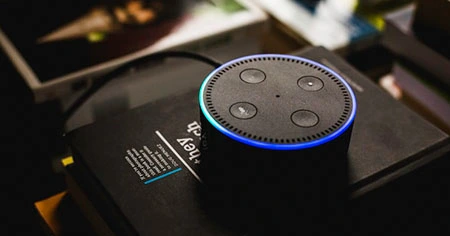
- New roles for robots
Robotics will play a larger supporting role in medicine. Aside from surgery, robots transport supplies, disinfect patient rooms, assist with physical therapy, and provide excellent companionship to isolated patients. More medical facilities will order such solutions to increase their capacity and improve care quality.
- Emotion AI for mental health disorders and ASD (autism spectrum disorder)
Emotion AI in telemedicine apps makes the experience more valuable and engaging for patients, especially those with mental disorders and autism. Furthermore, voice analysis can be used by emotional AI-powered healthcare apps to diagnose mental disorders such as autism, dementia, Down syndrome, depression, and others.
- Comprehensive remote monitoring
As consumer habits change and more people use wearables, these devices will track patient health signals and transmit data to cloud analytics platforms in significant numbers. Algorithms will detect emerging issues and alert providers to intervene before conditions deteriorate.
- Chronic Disease Diagnosis
AI-enabled solutions have enormous potential for chronic disease diagnosis, with increased treatment accuracy supported by critical data insights. AI-powered whole-heart computational models, for example, provide a personalized understanding of the various conditions associated with ventricular arrhythmias.
- Efficient administrative activities
AI will perform more routine administrative tasks as NLP, speech recognition, and robotic process automation advance.
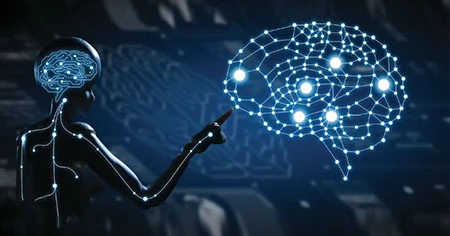
Conclusion
Incorporating artificial intelligence (AI) in healthcare represents a watershed moment with the potential to reshape the landscape of medical practices. AI provides invaluable insights that aid in timely and accurate diagnosis, strategies, efficient disease management, and personalization due to its ability to analyze large amounts of data. This technology enhances healthcare professionals' capabilities and empowers patients through early disease detection and improved treatment outcomes.




